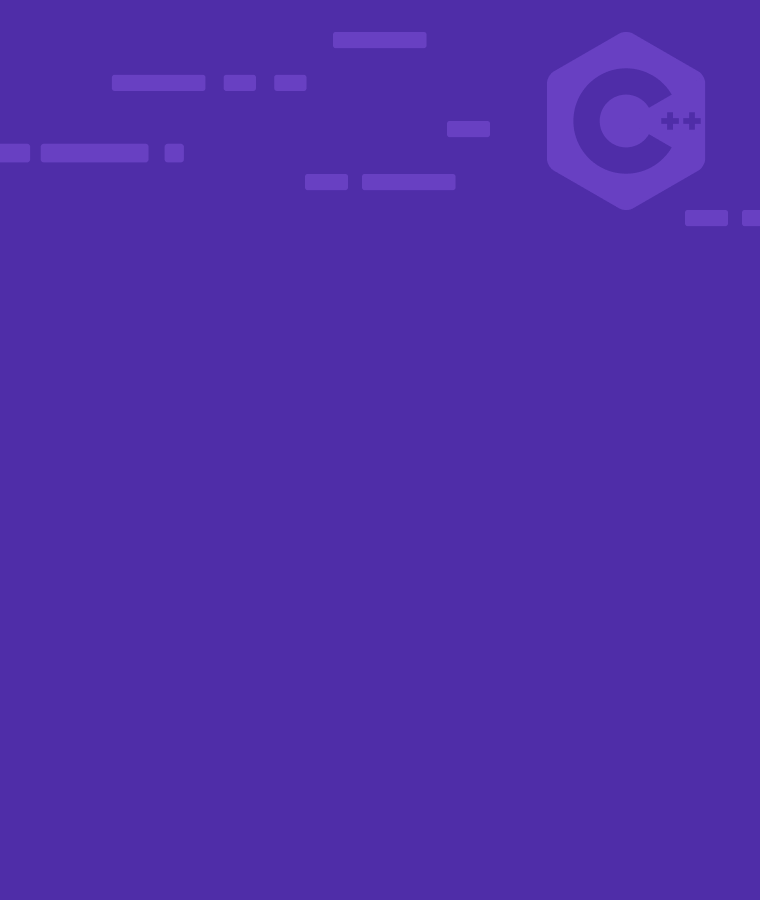
What is C++ Used For?
What is C++?
Want to make a game? Create software, browsers or operating systems? Do you want to use a language that lets you create powerful, yet like programs? Then you need C++.
Developers use C++ for general-purpose programming, including building software and doing scientific calculations. It’s also used in many other general-purpose tasks in the software industry.
That’s why C++ is known as a general-purpose language. In other words, someone can take C++ as both a low-level & high-level language. It means that C++ can work closely with hardware resources, unlike C# and Java.
It’s also efficient when handling the memory of electronic devices. Therefore, it’s popular for developing embedded applications and IoT devices. Embedded applications are software applications used in consumer electronic devices. An example of embedded systems is automatic washing machines. An example of IoT devices is smartwatches.
So what can you do with C++? And what are its advantages over other languages?
The main features of C++
C++ is an Object-oriented supported language
C programming language uses functional programming to write codes.
What is function programming? It means you are writing your code as a collection of functions. Yet, there are some downsides to it: developers can’t really express or represent real-world objects with functions. This is where Object-Oriented programming (OOP) comes to play. C++ is an object-oriented programming language.
Classes and objects are the main building blocks of Object-oriented programming(OOP). Usually, we create these classes around real-world concepts. Thus, OOP allows you to code interactions between real-world objects easily.
In OOP, your program will be a set of separate classes. Most of these classes can act as independent entities. Thus, OOP lets you create more modularized code compared to procedural programming.
C++ is fast
C++ takes less time to compile and execute code than other general-purpose languages. A C++ compiler will directly convert the source code into machine-readable code. Thus, C++ allows fast compilation and execution of applications.
C++ has a wide range of library support
C++ has broad external library support, bringing tremendous capabilities to your project.
- The Standard Template Library is called STL. It simplifies coding by providing useful data structures. Some examples of data structures are tables, hashes, sets, maps, lists, and arrays. C++ provides many other libraries for different use cases besides these standard libraries. The following list includes a few of them.
- POCO C++ Library is a cross-platform library used to perform file system operations.
- Standard File System library
- OpenSSL library brings you cryptographic operations and applies TLS protocols to your applications.
- SQLite is a full-featured database engine that allows integrating databases with your application.
- JSON for modern C++ enables working with JSON objects in C++
Better performance
Pointers and references are powerful features in C++ compared to other programming languages. They allow you to divide memory dynamically so you can better manage RAM. This directly affects the performance of the application.
C++ can work closely with hardware resources
As a low-level language, C++ can closely communicate and work with hardware resources. Thus it is easy to manage memory and handle multi-threaded executions. Furthermore, it offers better processing speed while executing applications.
Many industries use C++ for their products. Now let’s discuss several use cases of C++ and how it is used.
What is C++ used for
Operating systems (OS)
Operating systems must be fast and capable of managing system resources efficiently. Generally, users can see an operating system as a graphical user interface. Yet, the OS does a lot more behind the scenes.
- handles Input/Output(IO) operations
- stores and finds files on the hard drive
- allocates memory and handles garbage
- executes software applications installed on top of the OS
- supports executing user-written programs and multimedia applications
- supports peripheral devices, IoT devices, and many others
- manages resources efficiently
Often operating systems do the above tasks simultaneously. This requires multi-threading to a great extent.
This is why the code of an OS needs to be written in an efficient programming language. Unsurprisingly, many OS’s use C++ as their base language. Some popular examples are Ubuntu, Linux, Windows, and IOS.
Game development
Game developers have used C++ in the gaming industry for a long time. They use C++ to develop different types of 2D and 3D game engines and gaming APIs. Games load many objects within a few seconds and these objects communicate with each other during the gameplay.
Lagging means a negative user experience and bad reviews. That’s why minimum latency is a major consideration in game development. C++ is capable of efficiently running complex programs and it’s close to machine language compared to other high-level languages. So C++ can handle hardware-related operations.
Are you a gamer? The following games and game engines use C++:
- Counterstrike,
- Unity engine,
- Unreal Engine,
- the world of warcraft,
- Game consoles like PlayStation and Xbox
AR/VR applications
Virtual reality is getting more popular. Gaming is the most widespread VR application worldwide, and Unity and Unreal are the most popular game engines for VR gaming.
VR and AR applications manage large amounts of data from camera sensors. 3D environments are created in your VR pod based on object movements. It requires fast execution and memory management from the VR device. So C++ is perfect for delivering an excellent virtual experience to users.
Databases
Most software applications and organizations use databases to keep track of their data. A large amount of data is stored and handled in databases. The speed of databases is directly proportional to the performance of an application. Therefore data creation and data handling processes need to be efficient. C++ is used to create both relational and non-relational (NoSQL) databases. Some examples of databases written in C++ include:
PostgreSQL
MongoDB
Internet Of Things(IoT)
Smart applications play a huge role in our lives today by automating tasks.
Some use cases of IoT devices are:
- smart watches,
- TVs,
- home appliances,
- vehicle appliances
- medical devices
Many of the above’s applications are written in C++ because it can handle I/O operations quickly. It can efficiently communicate with sensors, robotics components, and external devices. Plus C++ can work closely with hardware components like memory and CPU.
Web browsers
Hate lagging or freezing web pages on the internet? Most popular web browsers are developed in C++ to prevent that.
Some notable examples are
- Google Chrome
- Mozilla Firefox
- Opera
- Safari
So, C++ provides an optimal browsing experience by loading interactive web pages quickly. It is possible since C++ gets information from databases with minimal delays.
Banking
Banking systems usually process millions of transactions daily. Their systems need to handle simultaneous processes so many financial institutes still use C++.
The main reason for that is C++ executes programs with low memory access. Besides, it is harder to attack applications developed in low-level languages like C and C++. Thus, C++ provides a new layer of security for these applications. Infosys is a famous banking application developed using C++.
Graphics
Graphical applications and tools need a lot of computer resources. They’re used for:
- video editing,
- 3D creation,
- Virtual Reality creation,
- Photo editing
- generating high contrast images,
- converting old videos into quality videos through AI,
- and creating animations and visual effects
These all require a lot of RAM on your PC and a good CPU. Almost all gralhic editing software is written in C++.
Medical Technology
C++ is used various medical appliances such as MRI scanners.
C++ is used in machine learning for diagnosis, too. Usually, it needs developing models using large datasets. C++ is a good language for building these models.
Telecommunication industry
The telecommunication industry requires software for managing text, voice, and video exchange. Usually, this software has to work with hardware devices and you need it to:
- do mathematical calculations for signal and image processing
- Network simulation and design
- Wireless and mobile network planning
- Protocol analyzing
- To program IoT devices
Movie Production Industry
Most 3D and animation movies are created using software written in C++. It enables filmmakers to add rich graphics and animations to movies.
Flight Software
C++ is used for building flight software for commercial airplanes and military aircraft. An efficient language is needed to model, test, and stimulate flight capabilities. Defense contractors use C++ for that purpose as it is good at it. A few examples are F-16s and F-35s.
Airplanes also require such software as pilots often train using flight simulators. Famous airlines use flight control systems developed with C++. C++ is also used for building aircraft safety and performance software. This software performs tasks like optimizing wing design and reducing drag.
Safety is a critical feature of this kind of software. Thus, the development is highly regulated to meet the necessary safety standards. Developers have to follow strict coding standards when developing. These exacting standards make C++ an attractive choice for developing flight software. It ensures that the features of planes work constantly and predictably during flights.
Distributed Computing
C++ is popular for developing distributed systems. A distributed system is a system whose components are spread across multiple computers. These computers communicate with each other (think of banking systems and social media networks that use several servers to host them) . So if one server goes down, the whole application won’t break.
The main reason for that is its excellent support for multi-threading. C++ is lightweight and executes codes extremely fast. So, distributed system frameworks like XGboost, Redis, Caffe, and TensorFlow use C++ programs.
Conclusion
Both the IT and electronic industries use C++ heavily. Despite being four decades old, C++ is still very relevant today. There are a lot of new programming languages built for different types of software. Still, many industries still use C++ due to efficiency and excellent memory management.


